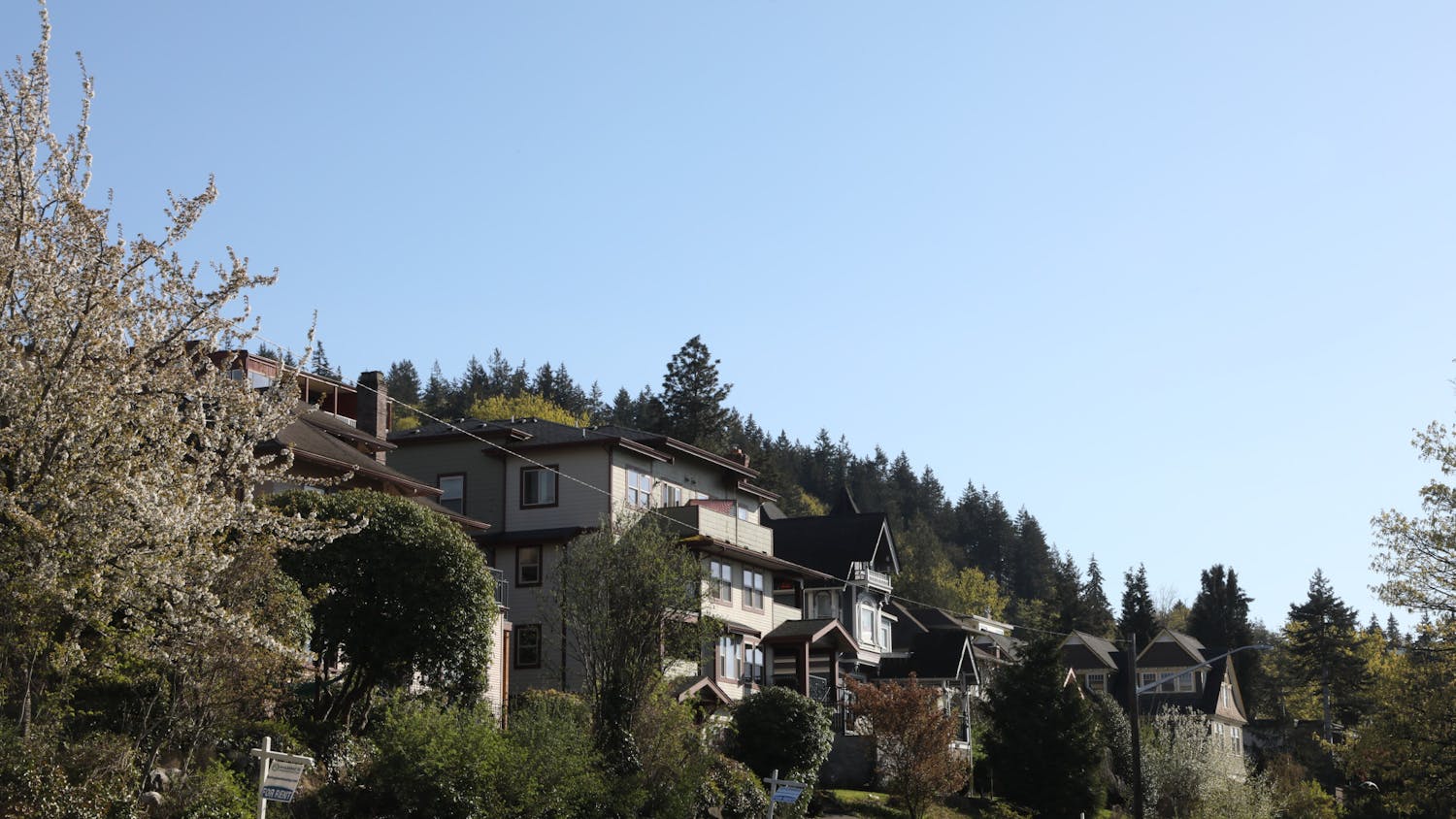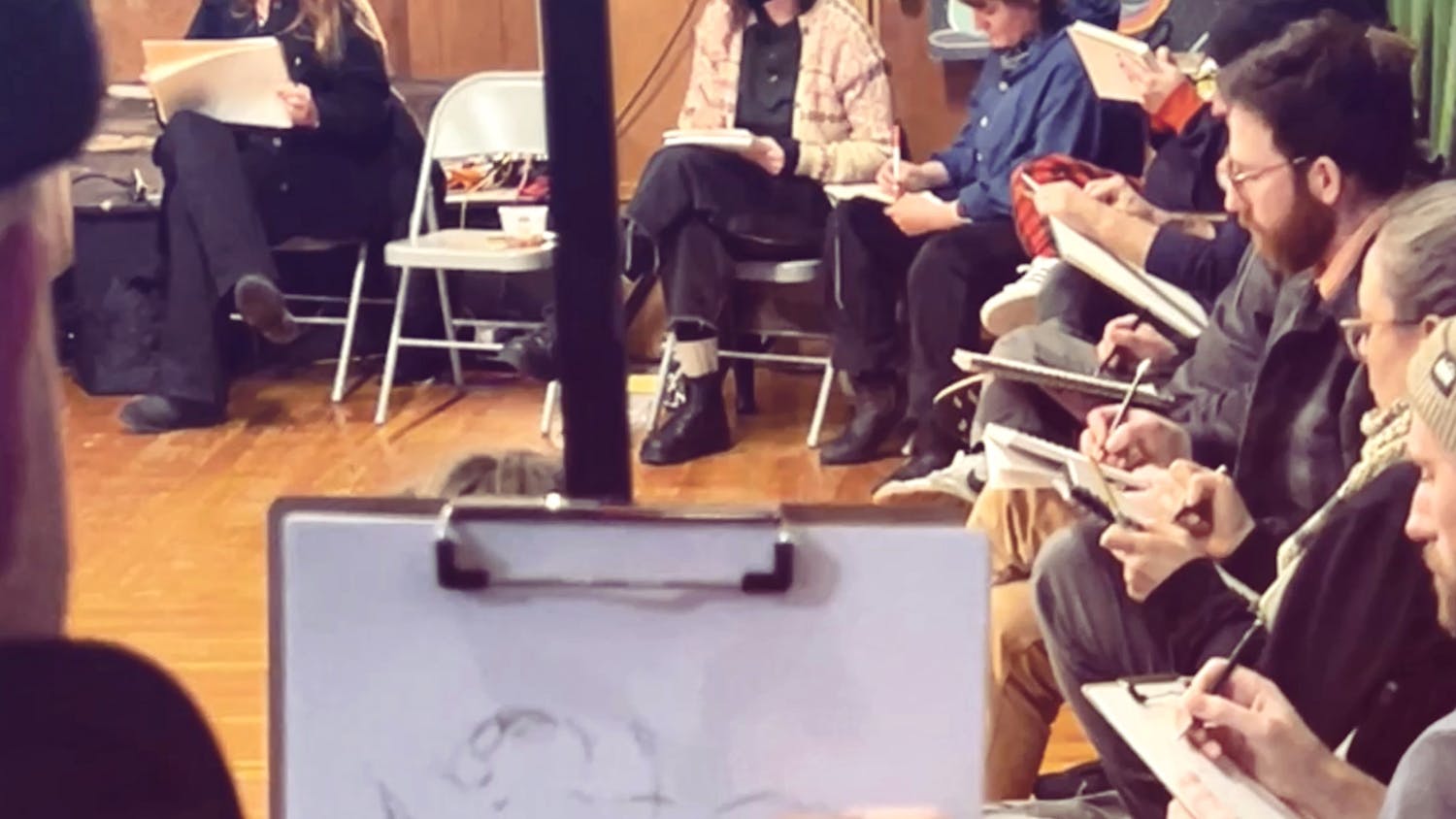Laborers in favor of ordinance AB2019-285 pose for a photo after it was passed on Tuesday, Nov. 19. // Photo by Melody Kazel By Melody Kazel This story was updated on Dec. 5 to correct the misspelling of Lisa Marx's name. Union laborers from all around Whatcom County poured into the council chambers in neon orange and yellow clothing to speak in favor of apprenticeships at the county council meeting on Nov. 19. An overwhelming amount of the union laborers attending, such as Whatcom parent Lisa Marx, spoke about how the union apprenticeship program helped them support their children during a time of need. “When the economy collapsed in 2008, so did my world ... Eventually I lost everything I owned, including my hope and self-worth. I became very close to homeless and was in complete despair,” Marx said. Marx applied for a job at BP Cherry Point refinery, which was in need of scaffold erectors and painters, she said. Hired workers like Marx could learn trade skills on the job while getting paid. “That day completely changed my life and showed me a world I never thought possible for this single parent,” Marx said. The union laborers came to attend the public hearing for ordinance AB2019-285, which will amend part of Whatcom County Code Title 3 that deals with revenue and finance. The ordinance passed 4-2 at the council meeting. Council Members Barbara Brenner and Tyler Byrd voted against the ordinance because they wanted to put it on hold in order to look into its economic impacts more. The ordinance has been on the docket for about 6 months. The ordinance will require public funds used for construction projects to also provide apprentices with job training hours to meet the requirements necessary to become the next generation of skilled trades persons. The apprenticeships would help new workers get certifications in their fields, such as an electrician’s certification, that meet state standards. While union laborers were largely in support of the ordinance, owners of open shops came to the meeting to speak against it. Open shops do not require employees to join a union, as closed shops do. Open shop owners and the companies’ administrative staff members said the ordinance would drive up their costs, and therefore make it harder for them to do business. “Open shop contractors invest heavily in staff training for the same reasons union contractors invest in apprenticeship. They want to develop safe, knowledgeable and productive workers,” Whatcom County resident Lance Calloway said. “Many open shop contractors opt to not utilize a state certified apprenticeship program, often citing the significant costs and reporting requirements associated with such apprenticeships.” Calloway is the northern district manager for the Associated General Contractors of Washington. During the open hearing proceedings, the county council started asking each individual speaker questions immediately after they gave their statements. Discussion about the ordinance lasted more than two hours. Council Member Todd Donovan brought up the point that this was not how the council typically conducts itself. “I don't think this is how we normally conduct public hearings,” Donovan said. “We have unlimited questioning. There's no such thing as three minutes anymore.” Council Member Carol Frazey agreed. “I'd be intimidated to come up here not knowing what questions are going to come at me if I've never spoken before,” Frazey said. “And I think it's the public's time to speak. It's not our time.” Clerk of the council, Certified Municipal Clerk Dana Brown-Davis also agreed the length of questioning was out of bounds for how the council normally conducts itself. She said the general rule is to allow for quick questions and brief explanations. “This is a little bit beyond what we normally do, what's happening right now,” Brown-Davis said. Brenner and Byrd said asking questions of the speakers was within the bounds of how council members are allowed to conduct themselves. “Well, I completely disagree,” Brenner said. “There're acronyms people bring up. I have no idea what they mean, and there's no way to find that out if you don't ask them.” According to the county code, “during an open session or public hearing, audience members will be given three minutes to address the council.” The amount of questioning did extend speaking times further than three minutes at the meeting. The county code does not address the amount of questions a council member can ask during a public hearing. All it states is that, “No member or small group of members shall be permitted to monopolize the discussion on a question.” Some people attending the meeting, who had been waiting to speak at the open session, felt questioning speakers about the ordinance monopolized the council’s time. After discussion finished on the ordinance and it was passed, the council tried to call a short break. A few people who had been waiting for the open session spoke up, with many in the crowd reacting by saying “no” and asking the council to hear them speak. The county council decided not to take a break and began the open session. Outside the council chambers, those who had come to the meeting to speak in favor of Ordinance AB2019-285 celebrated outside, some singing songs about the union.





